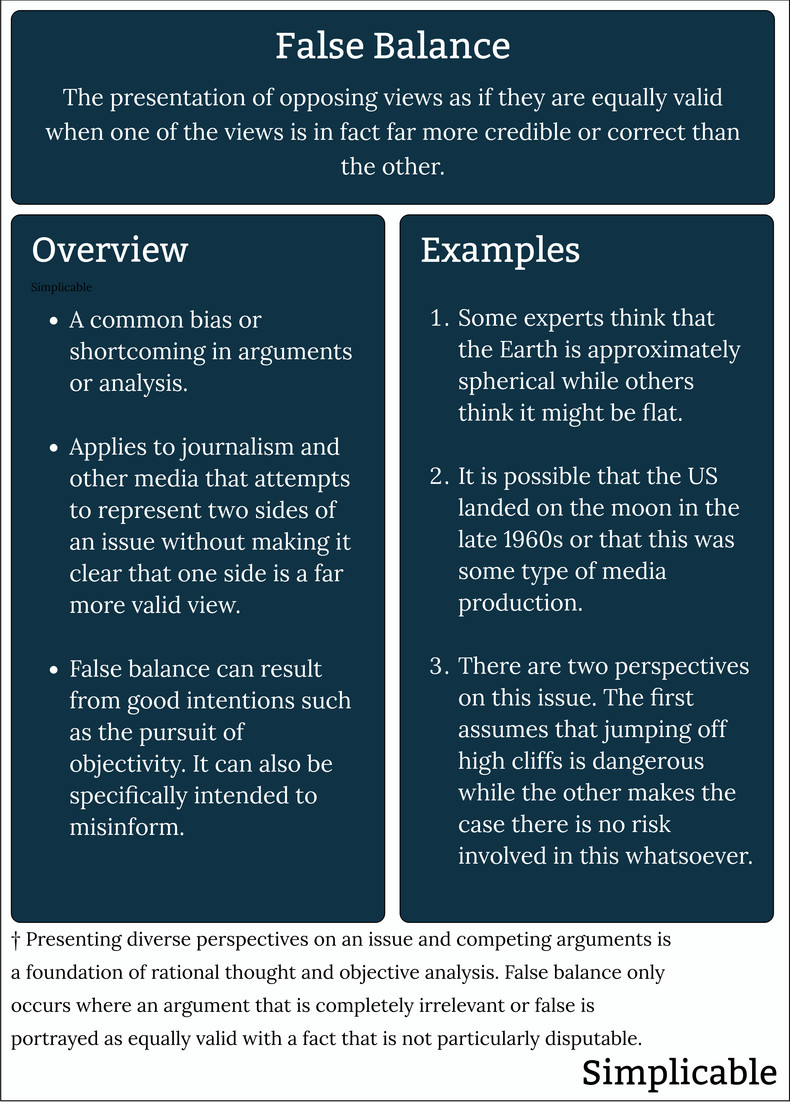
Wronger than Wrong
Wronger than wrong is a false conclusion that two wrongs are equivalent. This is based on a statement by science fiction writer Isaac Asimov that is known as Asimov's axiom:When people thought the Earth was flat, they were wrong. When people thought the Earth was spherical, they were wrong. But if you think that thinking the Earth is spherical is just as wrong as thinking the Earth is flat, then your view is wronger than both of them put together. ~ Isaac Asimov
Whataboutism
A whataboutism is a suggestion that a wrong isn't wrong because of another wrong. For example, a politician who is caught in a lie who points to another politician who also lied.Media Bias
Journalism with an agenda to represent a political ideology, state, industry or corporation may use false balance to persuade. Alternatively, false balance may occur due to a failed attempt to be objective. For example, a journalist may present a scientific theory as if it is controversial because scientists exist who contest the theory. This would be highly inaccurate if the vast majority of authoritative scientists in the field agree the theory is valid with dissent coming from non-authoritative sources.Anecdotal Evidence
Treating anecdotal evidence as equally valid as general empirical evidence. For example, pointing to a study that suggests that a particular diet is associated with weight gain and attempting to balance this with the observation that your friend eats a similar diet and is thin.False Equivalence
Suggesting two things are essentially the same when they are not. For example, pointing out that both lobsters and humans have serotonin in their brains so their behavior must therefore be similar.Summary
False balance is the positioning of arguments or positions as if they are equally valid when in fact, one is far more valid than the other.
| Overview: False Balance | ||
Type | ||
Definition | A misleading argument that presents two or more positions as equally valid when the evidence strongly supports one over the other. | |
Related Concepts | ||


























